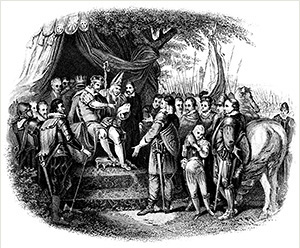
Parliament decided for the first time to tax the colonists directly. One such tax, the 1765 Stamp Act required all printed documents used or created in the colonies to bear an embossed revenue stamp. Colonial assemblies denounced the law, claiming the tax was illegal on the grounds that they had no representation in Parliament.

Magna Carta: The Sheer Force of an Idea

No Taxation Without Representation - Magna Carta: Muse and Mentor

No Taxation Without Representation - Magna Carta: Muse and Mentor

Magna Carta - Wikiwand

William Samuel Johnson - Wikipedia
:max_bytes(150000):strip_icc()/GettyImages-102882509-05d5003cf5504da2aa02e4479b28a8d2.jpg)
Taxation Without Representation: What It Means and History

Interpreting the Rule of Law - Magna Carta: Muse and Mentor

History – Volume 2

No Taxation Without Representation - Magna Carta: Muse and Mentor






